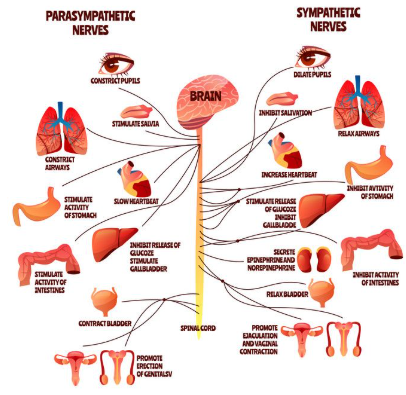Dysautonomia is a term that refers to a group of disorders affecting the autonomic nervous system (ANS). The ANS controls vital functions such as heart rate, blood pressure, digestion, temperature regulation, and respiratory rate. When the ANS isn’t functioning properly, it can cause a wide range of symptoms and health issues.
Dysautonomia includes different types of disorders, such as Postural Orthostatic Tachycardia Syndrome (POTS), Neurocardiogenic Syncope (NCS), and others like Multiple System Atrophy (MSA) and Pure Autonomic Failure (PAF).
POTS, a form of dysautonomia, is particularly common among young people, especially women (ages 15-50). Studies show that POTS affects approximately 1-3 million people in the U.S. alone, and it’s increasingly recognized globally.
Common Symptoms:
- Dizziness and lightheadedness: Often especially when
- standing up (orthostatic intolerance).
- Heart palpitations or racing heart: Often occurs with
- minimal exertion or while standing.
- Chronic fatigue: Persistent exhaustion, even with rest.
- Fainting or near-fainting episodes: Due to changes in blood
- pressure.
- Digestive issues: Such as nausea, bloating, constipation, or
- diarrhea.
- Temperature dysregulation: Problems with feeling too hot or
- too cold, sweating issues.
- Brain fog: Difficulty concentrating, memory problems, and
- cognitive impairment.
- Sleep disturbances: Trouble sleeping or waking up
- frequently during the night.
- Headaches or migraines: Common and can be debilitating
Awareness has grown in recent years due to:
- long covid which is presenting as a form of dysautonomia (in many cases POTS)
- recognition of the condition increasing although it still can take more than 3 years for diagnosis
Dysautonomia can be challenging to manage and often requires a multidisciplinary approach, including lifestyle modifications, physical therapy, medications, and in some cases, psychological support.


